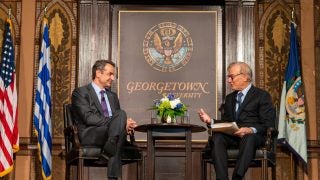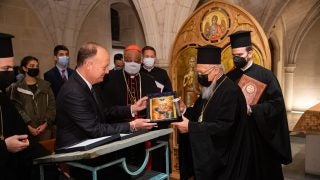Mike Pence on Bipartisanship
On October 19, GU Politics in partnership with the Young America’s Foundation welcomed former Vice President Mike Pence, who shared his thoughts on the future of the conservative movement in the United States.
 Bennie Chang (SFS’26): In the past couple of years, we’ve seen polarization increase so much, and one of the most difficult things to see is how conflicted and how antagonistic our whole country has become. One of my favorite things is seeing the bridging between Republicans and Democrats…So this is a question similar to the 2016 presidential debate between Donald Trump and Hillary Clinton: What is something that you like about Joe Biden and Kamala Harris?
Bennie Chang (SFS’26): In the past couple of years, we’ve seen polarization increase so much, and one of the most difficult things to see is how conflicted and how antagonistic our whole country has become. One of my favorite things is seeing the bridging between Republicans and Democrats…So this is a question similar to the 2016 presidential debate between Donald Trump and Hillary Clinton: What is something that you like about Joe Biden and Kamala Harris?
Mike Pence: I’ve known President Biden for a long time. He was in the Senate when I was in the House, we served together on conference committees, and we frankly always had a good relationship. When I was governor of Indiana, he was vice president. We worked together. Indiana actually introduced the first consumer-directed health care in Medicaid, and we negotiated with the Obama-Biden administration to do that and expanded health care to tens of thousands of Hoosiers that wouldn’t otherwise have it, but we did it with free market principles.
I will also say that when I was elected vice president during the transition, President Biden, Jill were very, very gracious to us, and I’ll always be grateful for that. I can’t identify a policy that I agree with in the Biden administration, but again, I think you can say that somebody’s ideas are bad without saying they’re a bad person.
And I remember the day that Kamala Harris was tapped to be Joe Biden’s running mate, and I called her from Air Force Two. I think she was a little surprised, but I just told her, ‘Senator, I got that call once…I want you to know we’re going to be praying for you and your family in the days ahead.’ I’ll never forget she said to me, ‘Mike I really appreciate the spirit of this call.’ We had our own spirited debate on national television, and we had barriers between us, but they weren’t tall enough to even stop a fly [applause], and we got strong differences…but I literally respect everyone, every man or woman — I don’t care what your politics are — if you’re willing to stand up and put your name on a ballot because you love this country, you have my respect.
Hear more from Pence and Georgetown students on the GU Politics YouTube page.
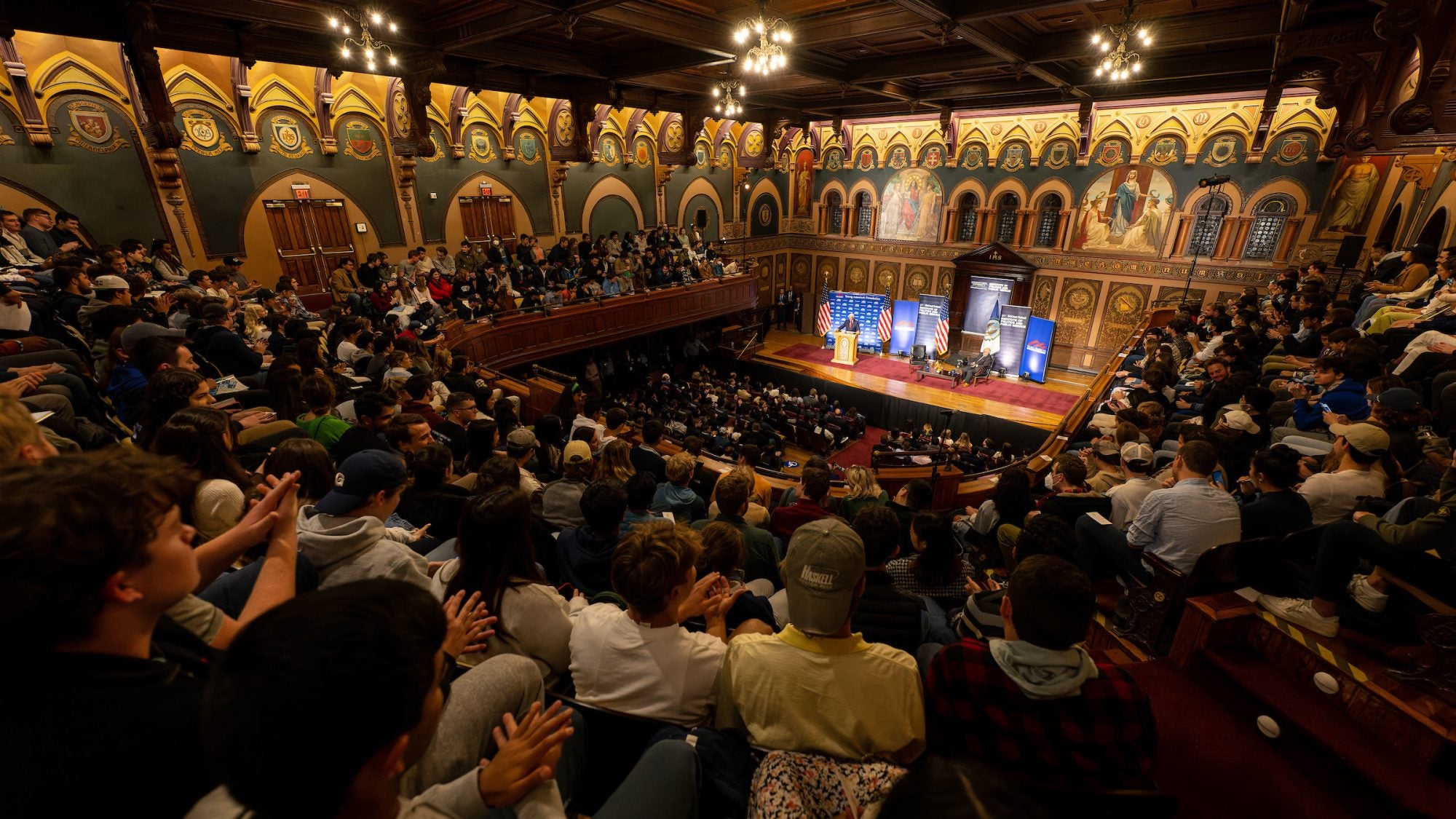
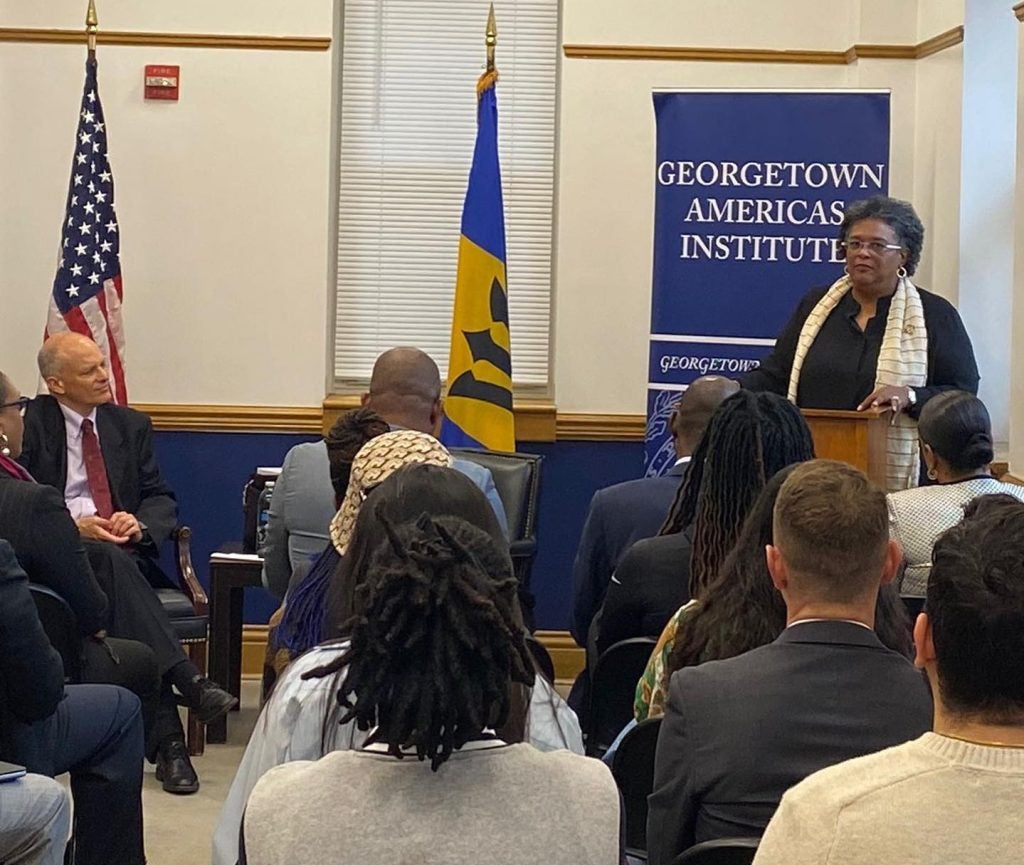
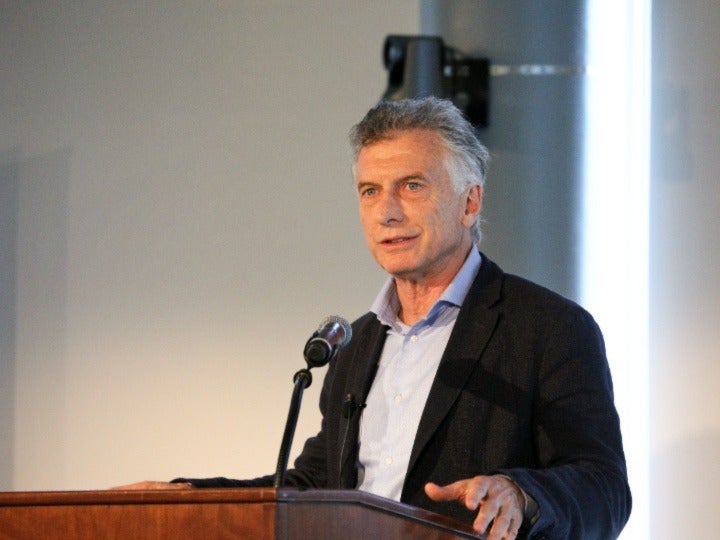
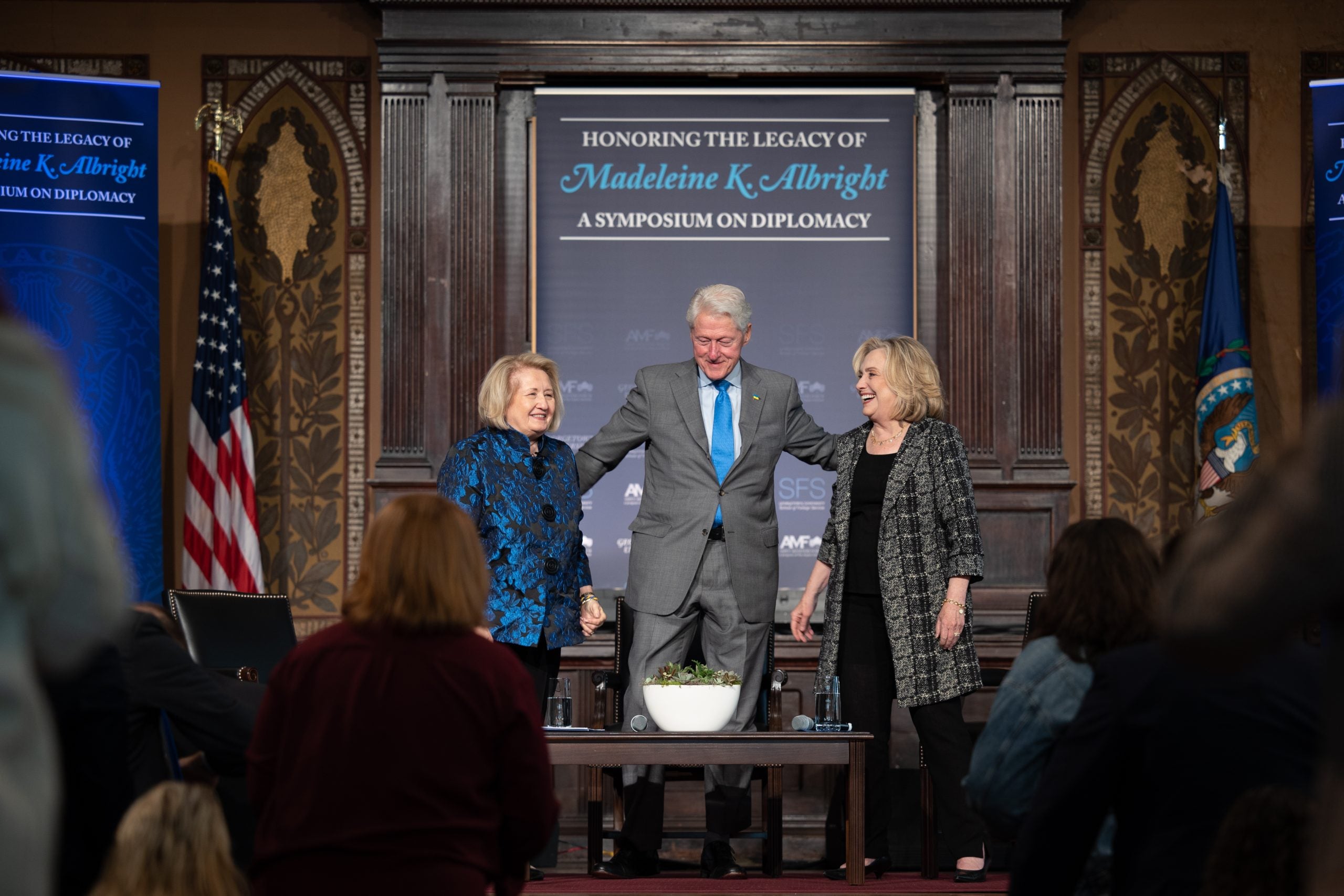
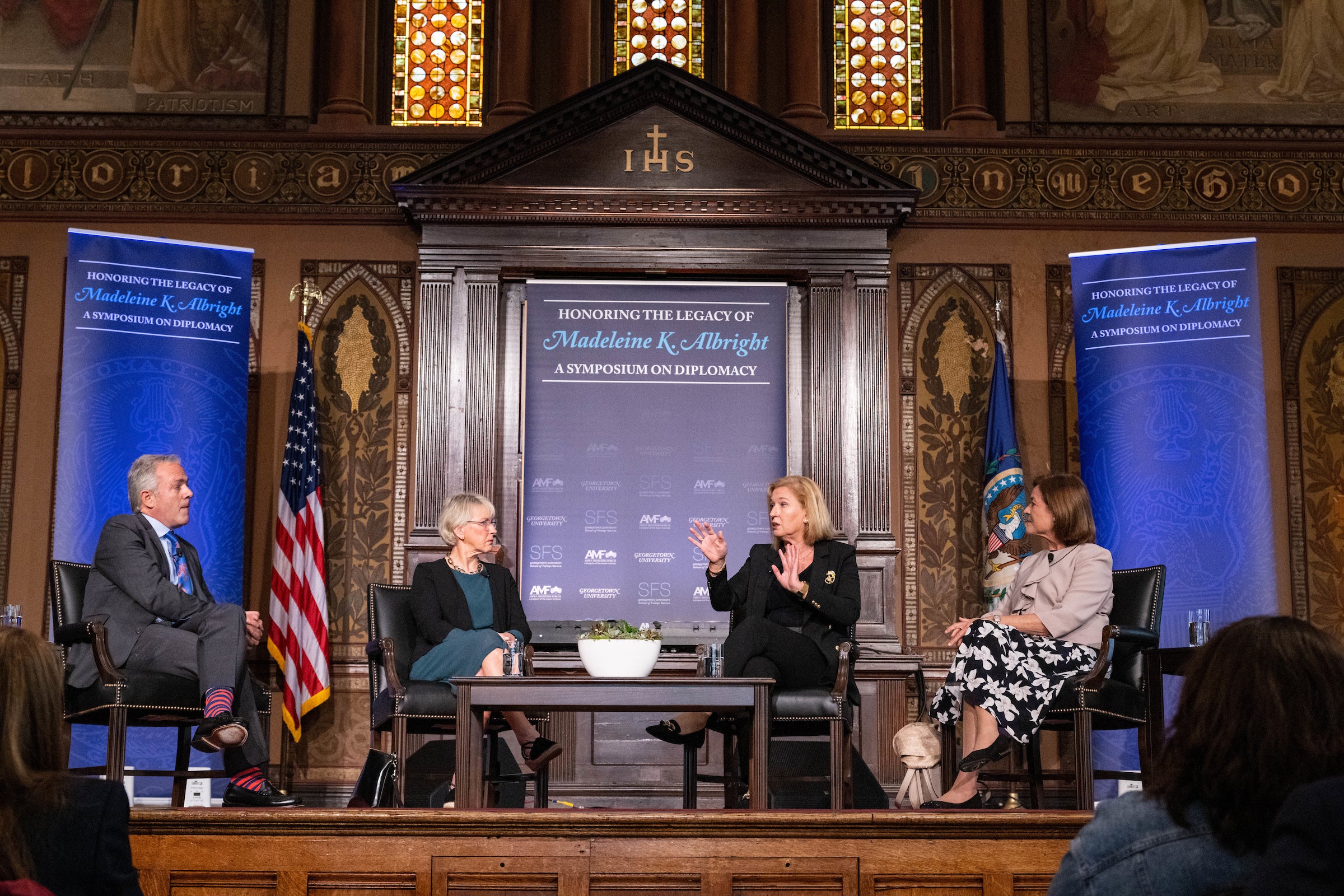
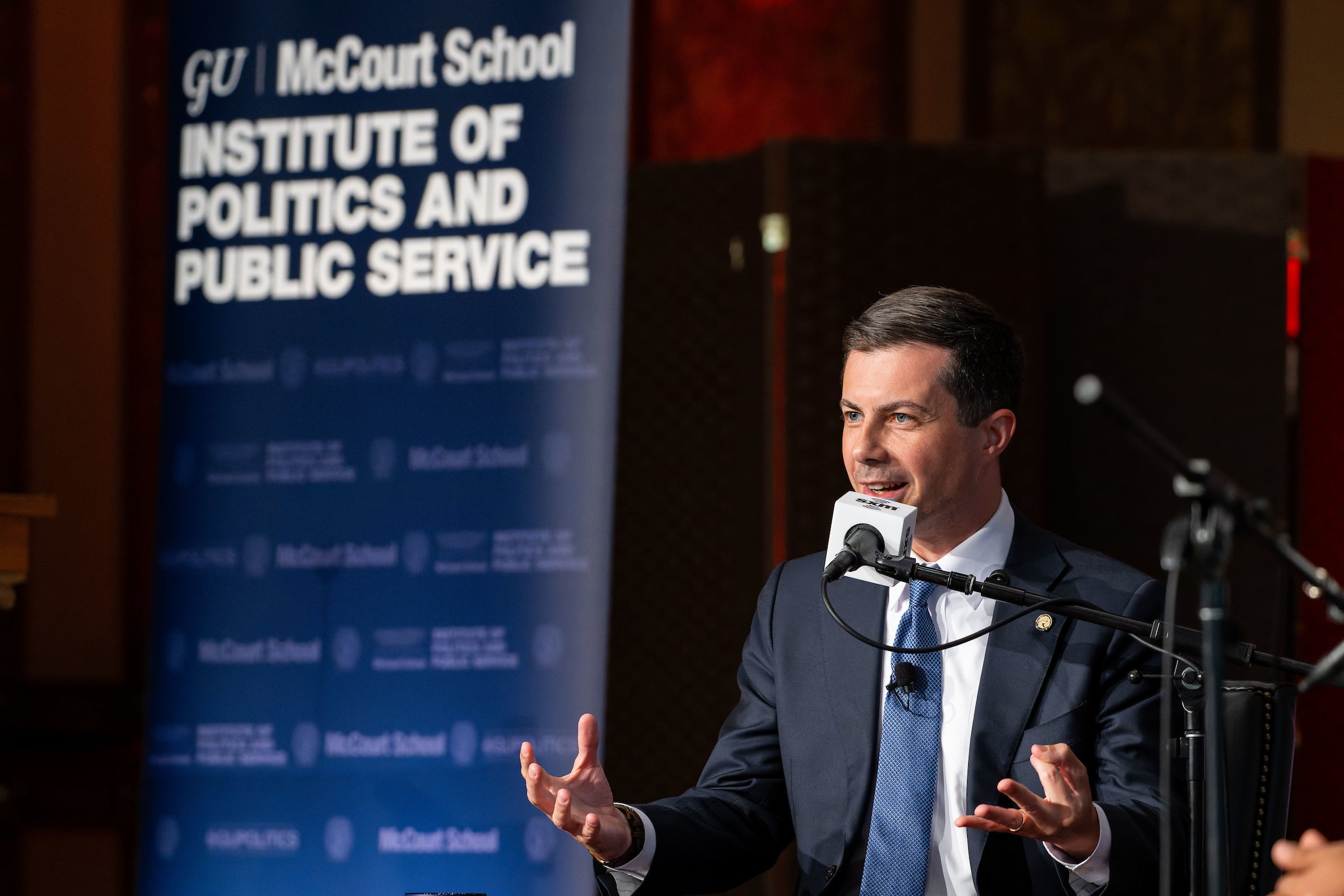
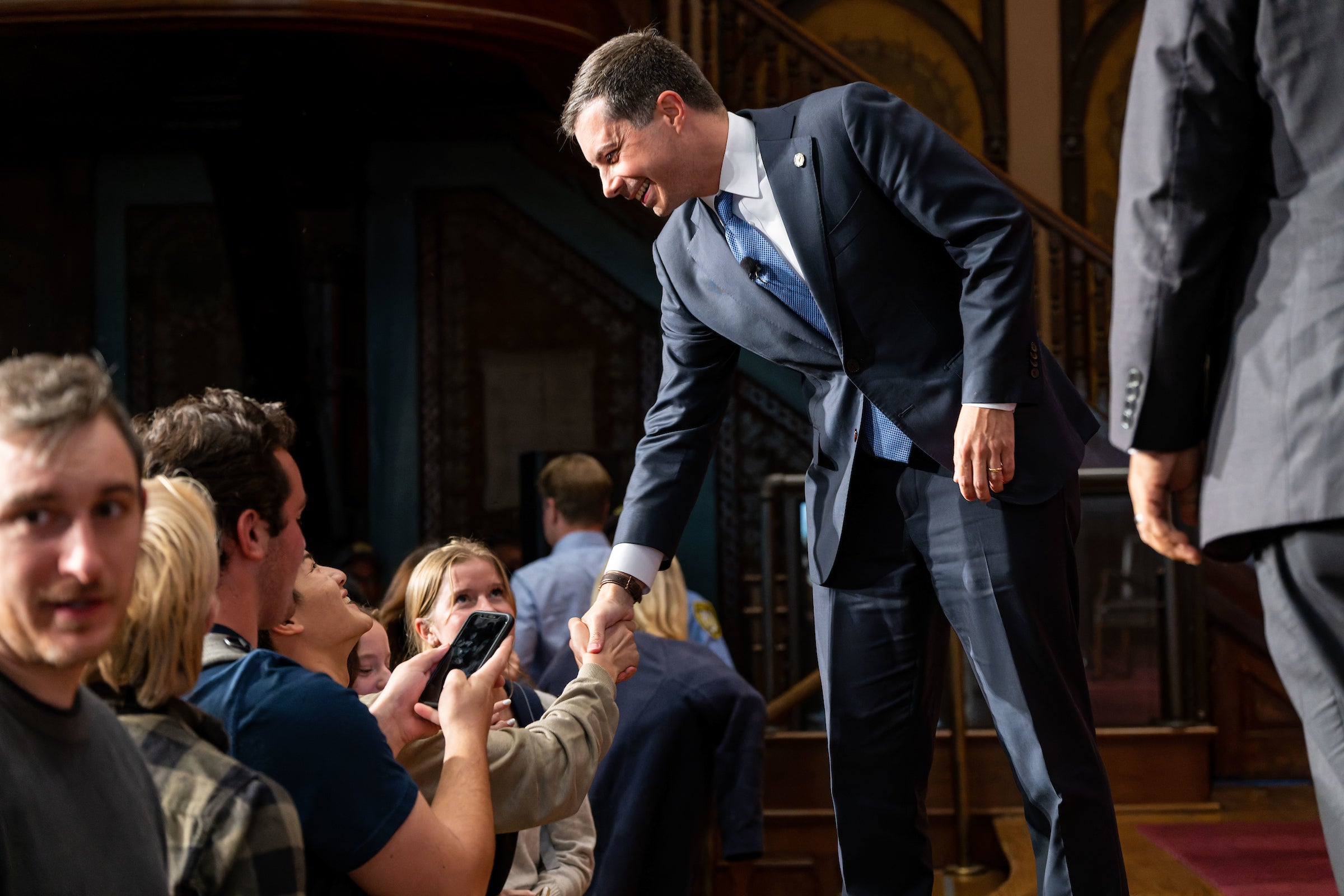
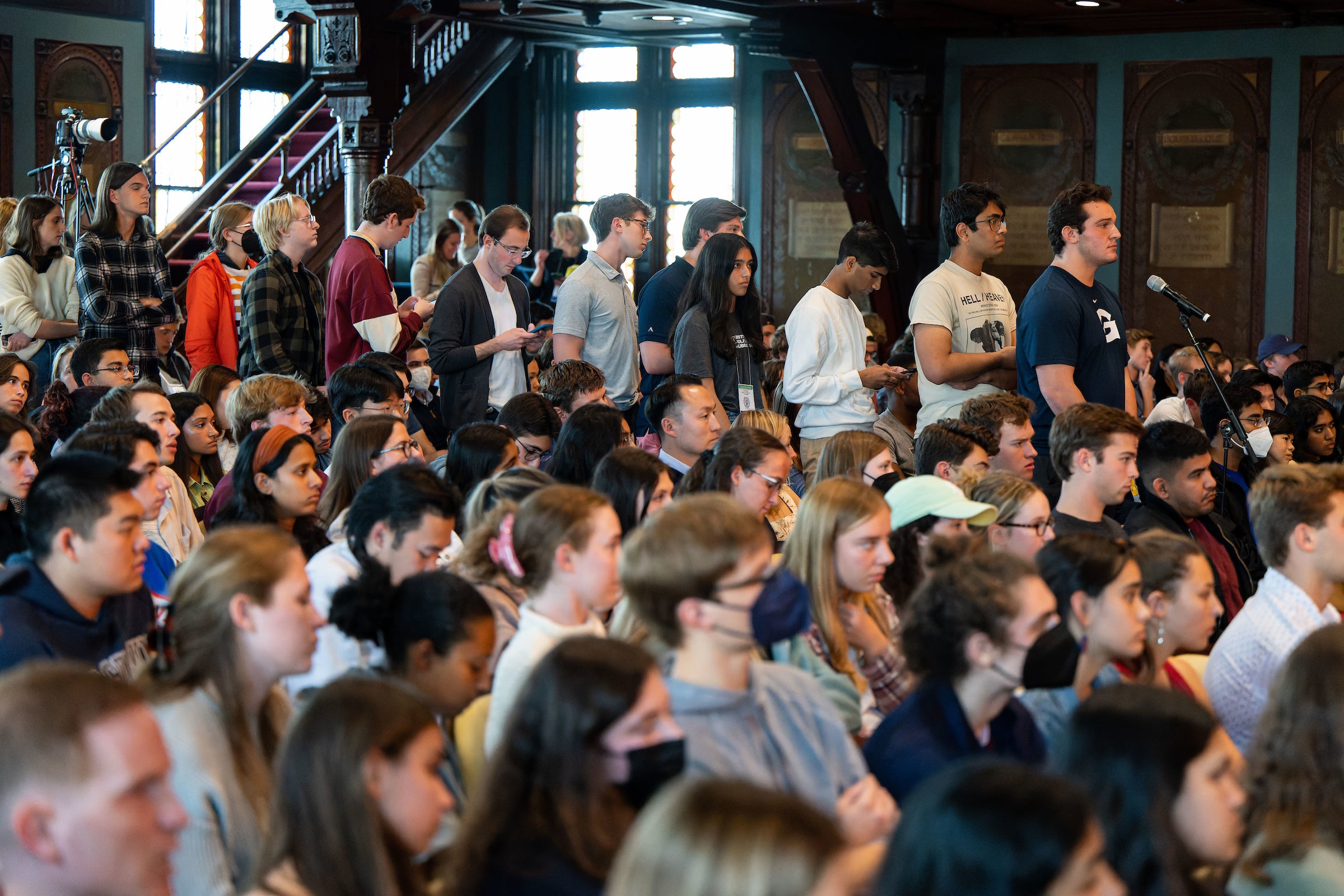
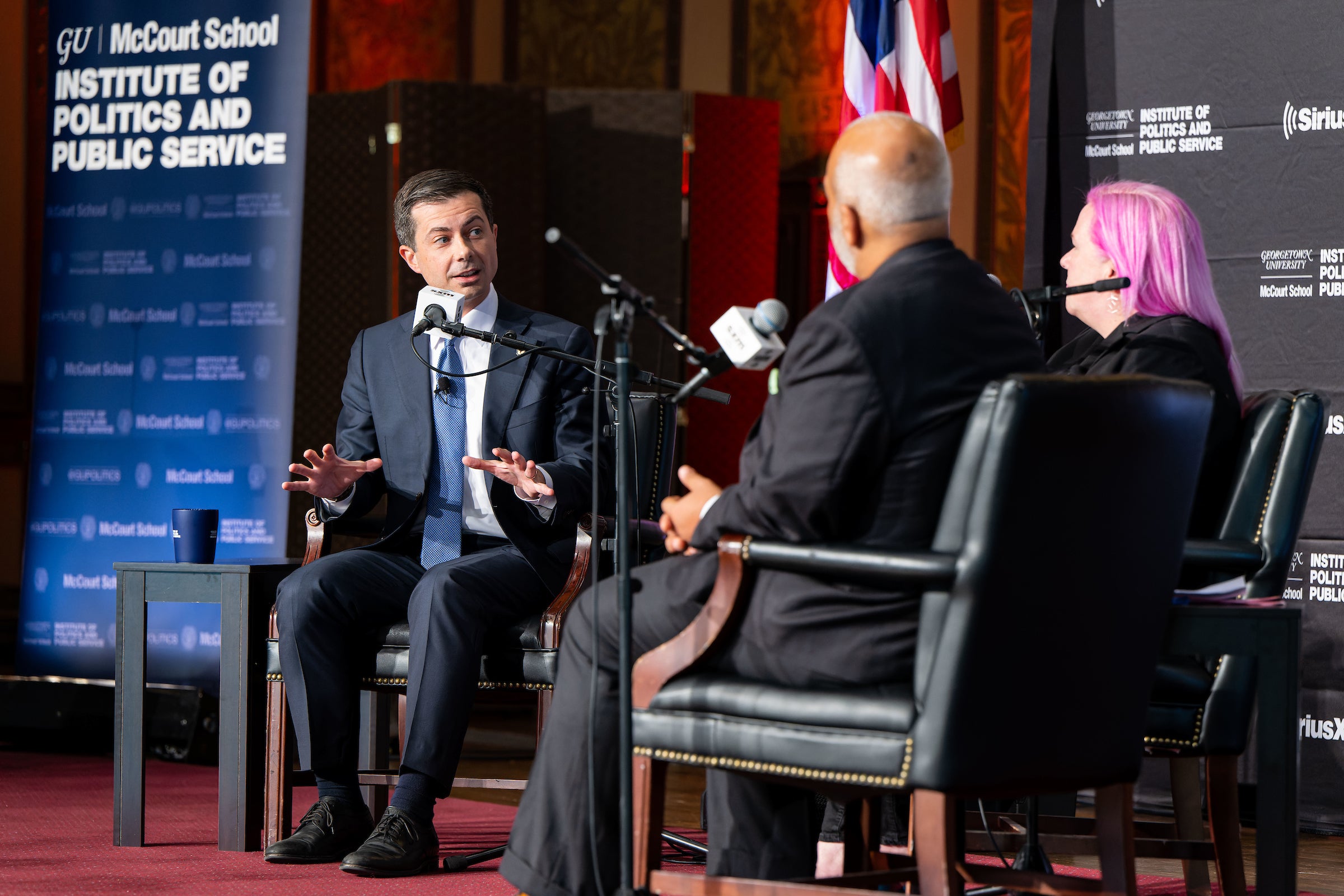
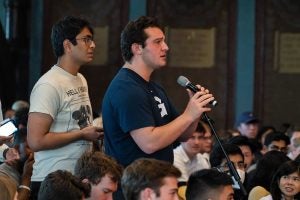 Chris LoPresti (C’25): There was a lot of money in the infrastructure bill and Inflation Reduction Act for a network of charging for electric vehicles (EVs) and tax credits for purchasing vehicles, but still these vehicles are way too out of the price range for average middle class Americans. So my question is: What will it take to bring those prices down, and how far in the future do you think that could become likely?
Chris LoPresti (C’25): There was a lot of money in the infrastructure bill and Inflation Reduction Act for a network of charging for electric vehicles (EVs) and tax credits for purchasing vehicles, but still these vehicles are way too out of the price range for average middle class Americans. So my question is: What will it take to bring those prices down, and how far in the future do you think that could become likely?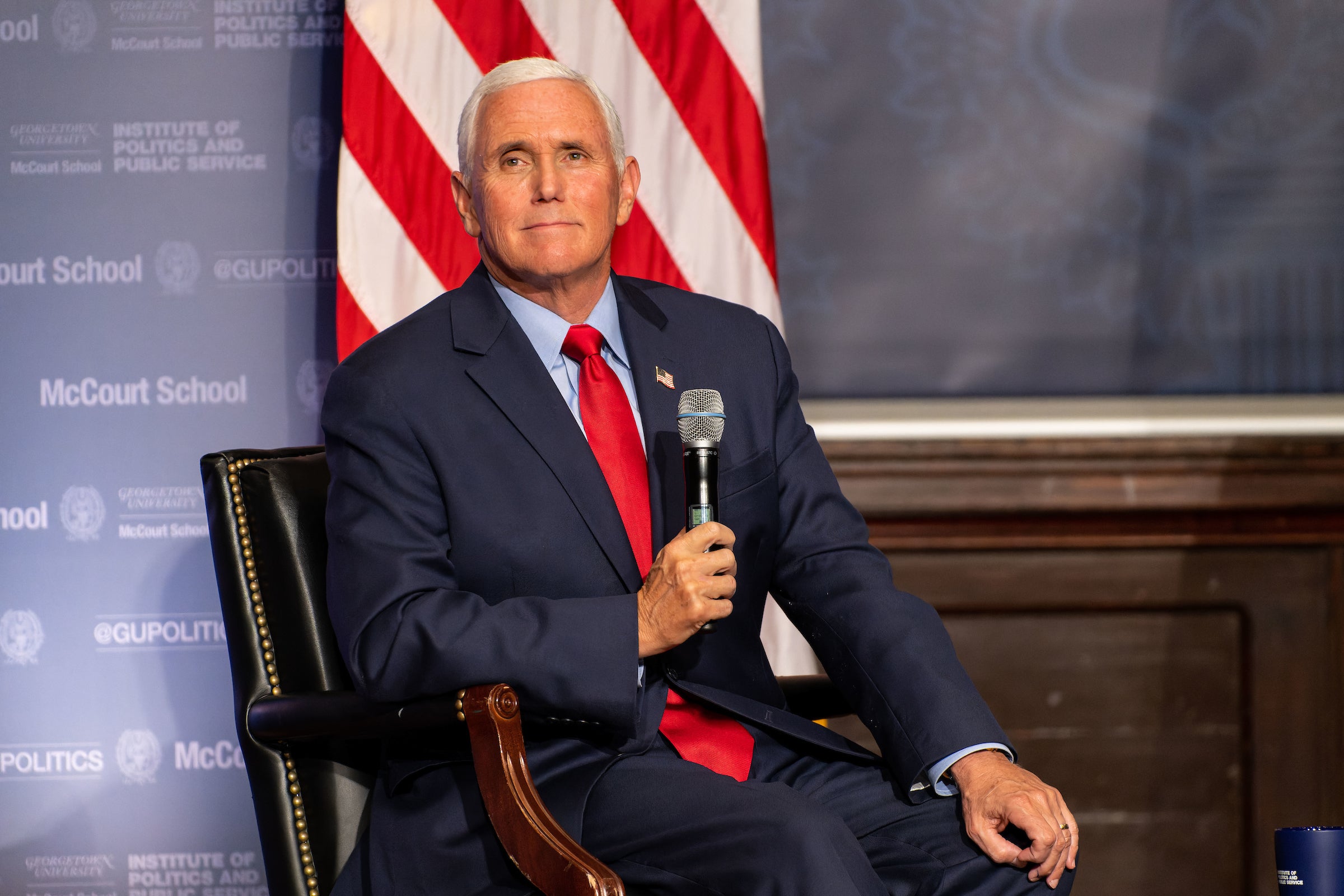
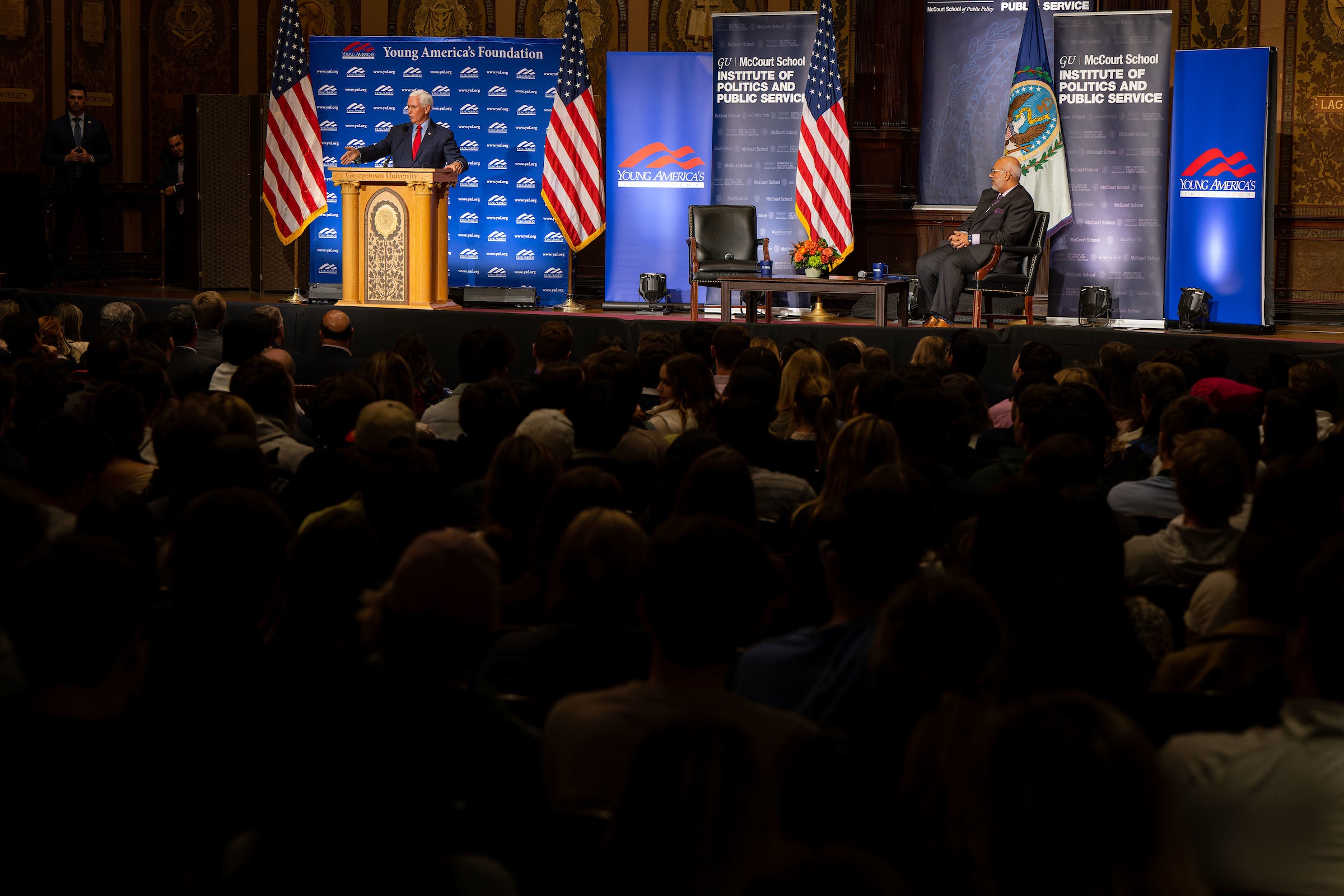
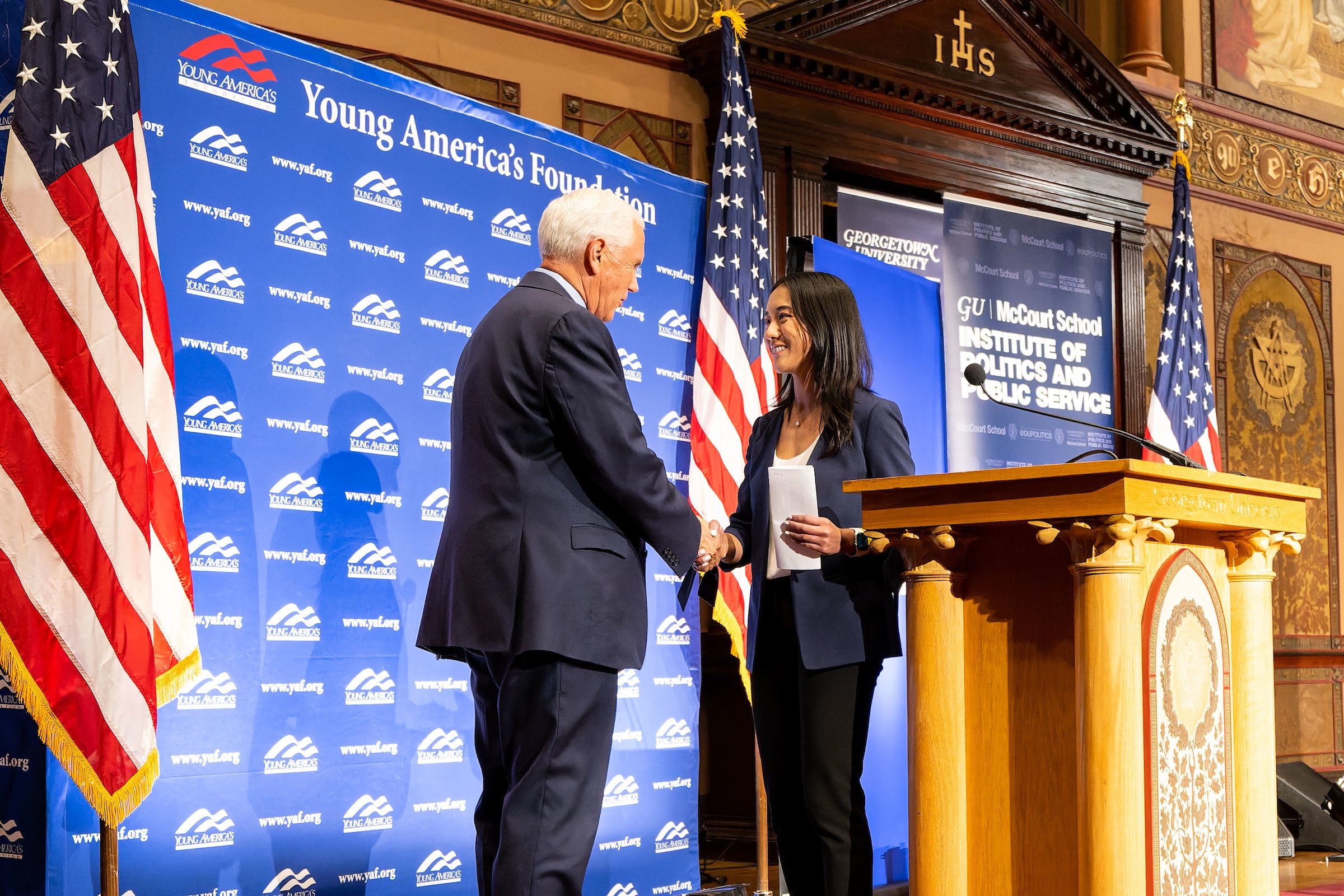
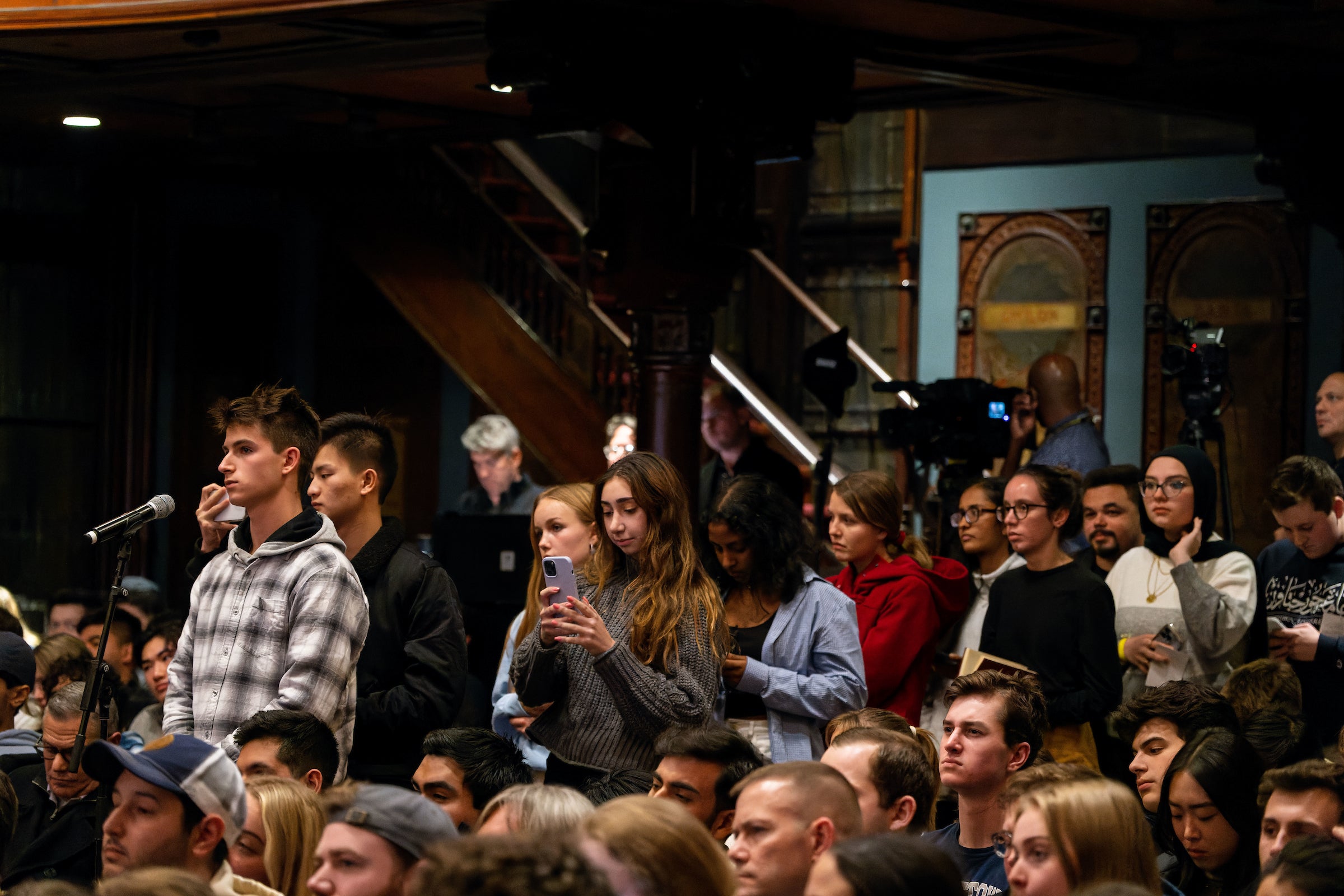
 Bennie Chang (SFS’26): In the past couple of years, we’ve seen polarization increase so much, and one of the most difficult things to see is how conflicted and how antagonistic our whole country has become. One of my favorite things is seeing the bridging between Republicans and Democrats…So this is a question similar to the 2016 presidential debate between Donald Trump and Hillary Clinton: What is something that you like about Joe Biden and Kamala Harris?
Bennie Chang (SFS’26): In the past couple of years, we’ve seen polarization increase so much, and one of the most difficult things to see is how conflicted and how antagonistic our whole country has become. One of my favorite things is seeing the bridging between Republicans and Democrats…So this is a question similar to the 2016 presidential debate between Donald Trump and Hillary Clinton: What is something that you like about Joe Biden and Kamala Harris?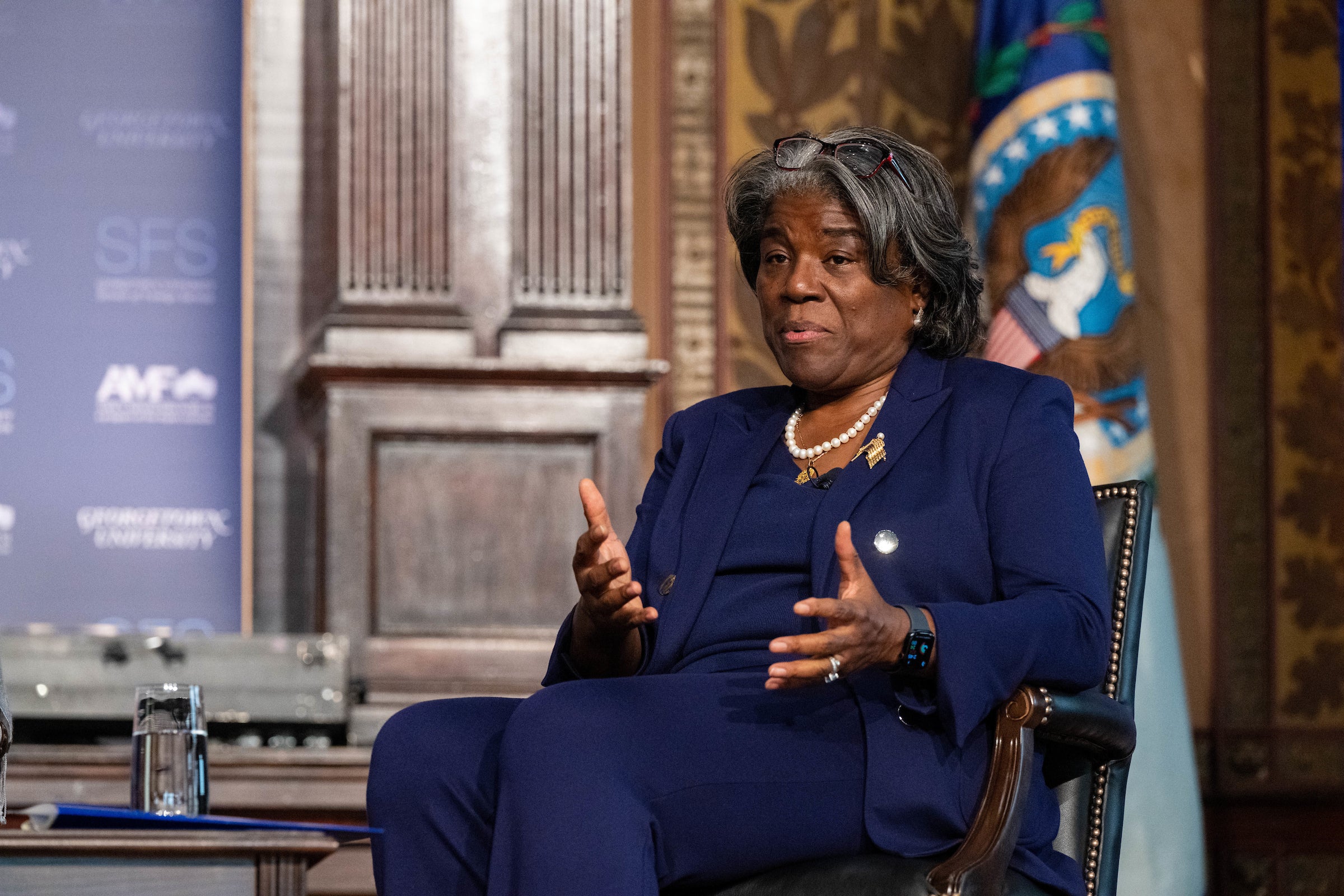
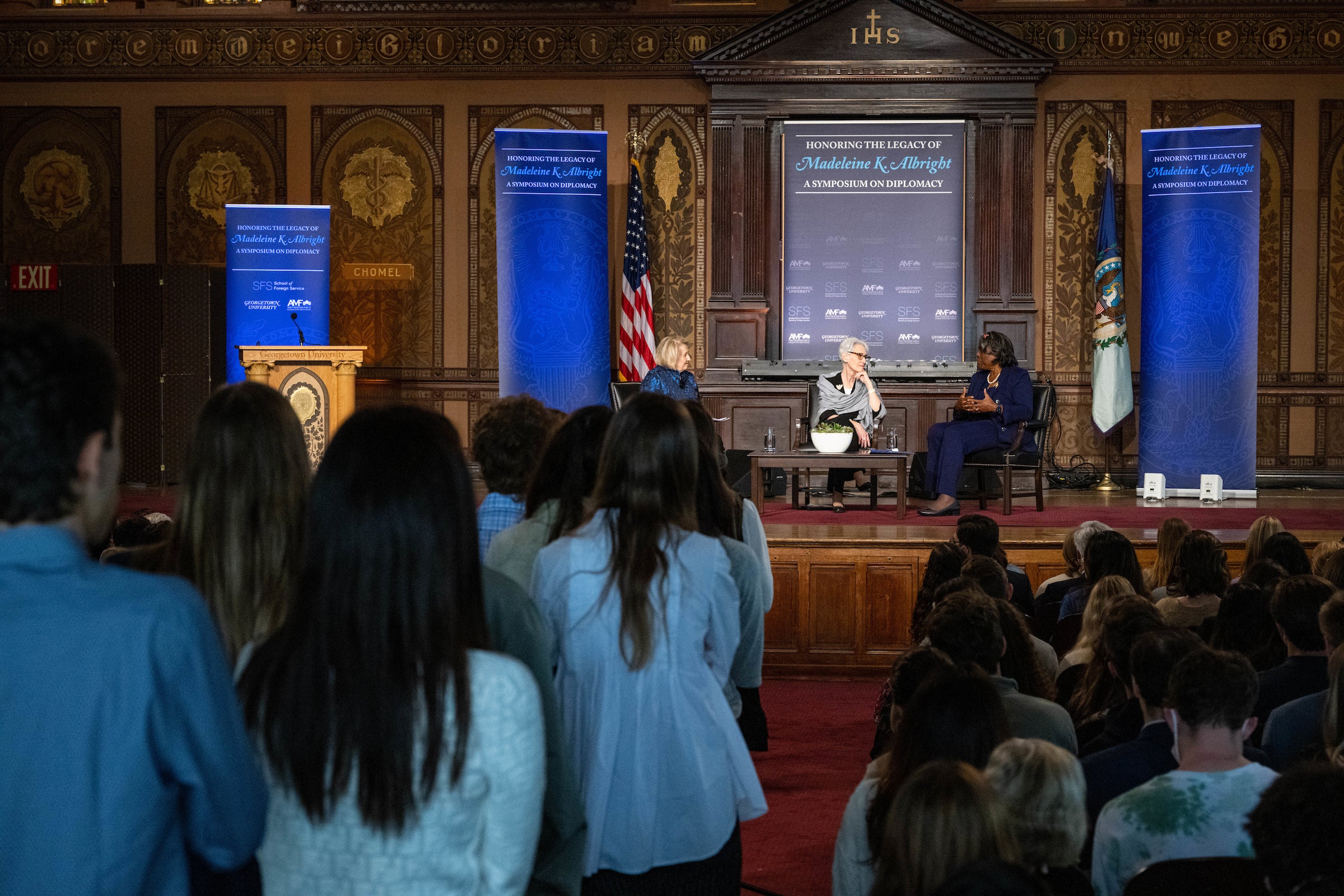
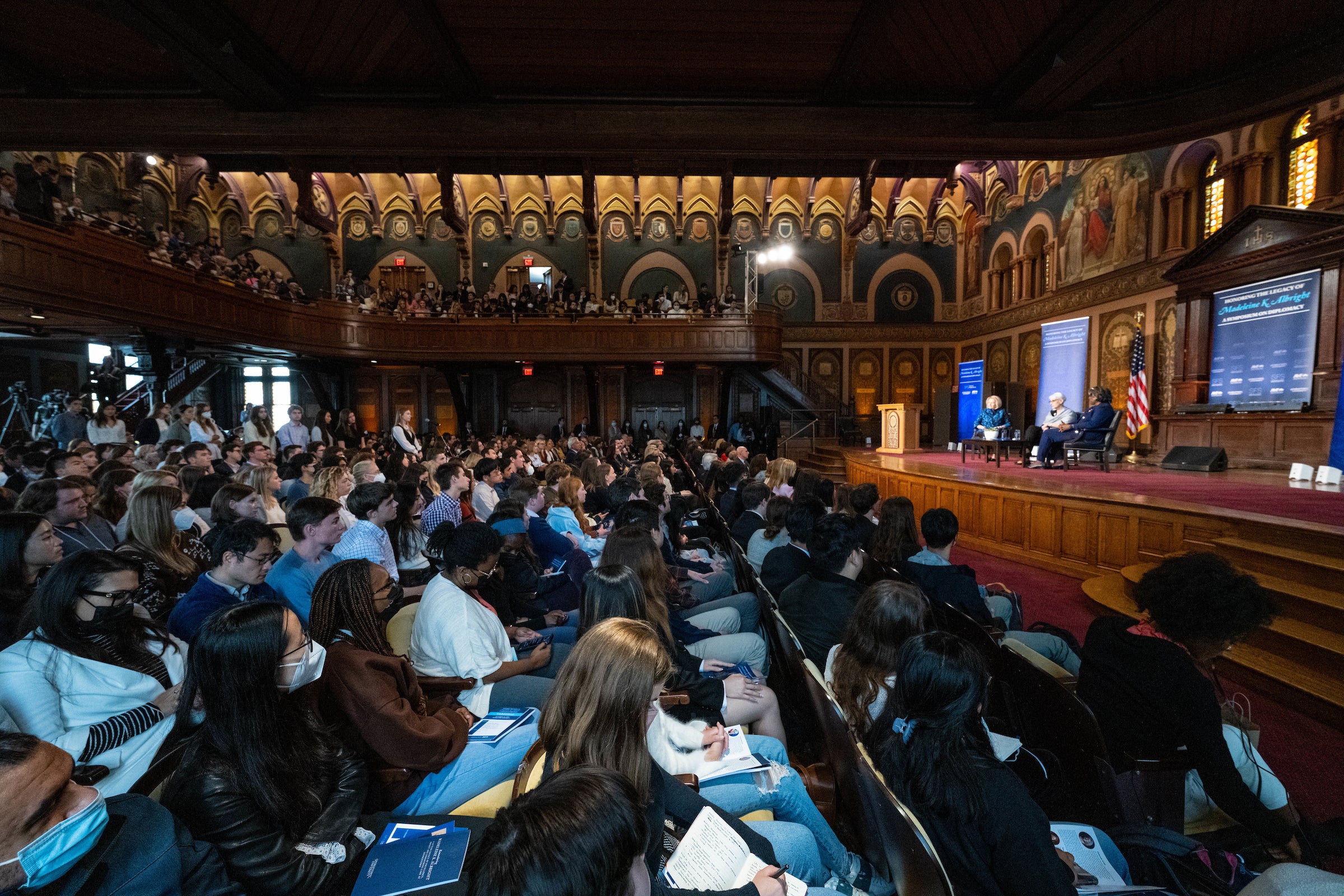
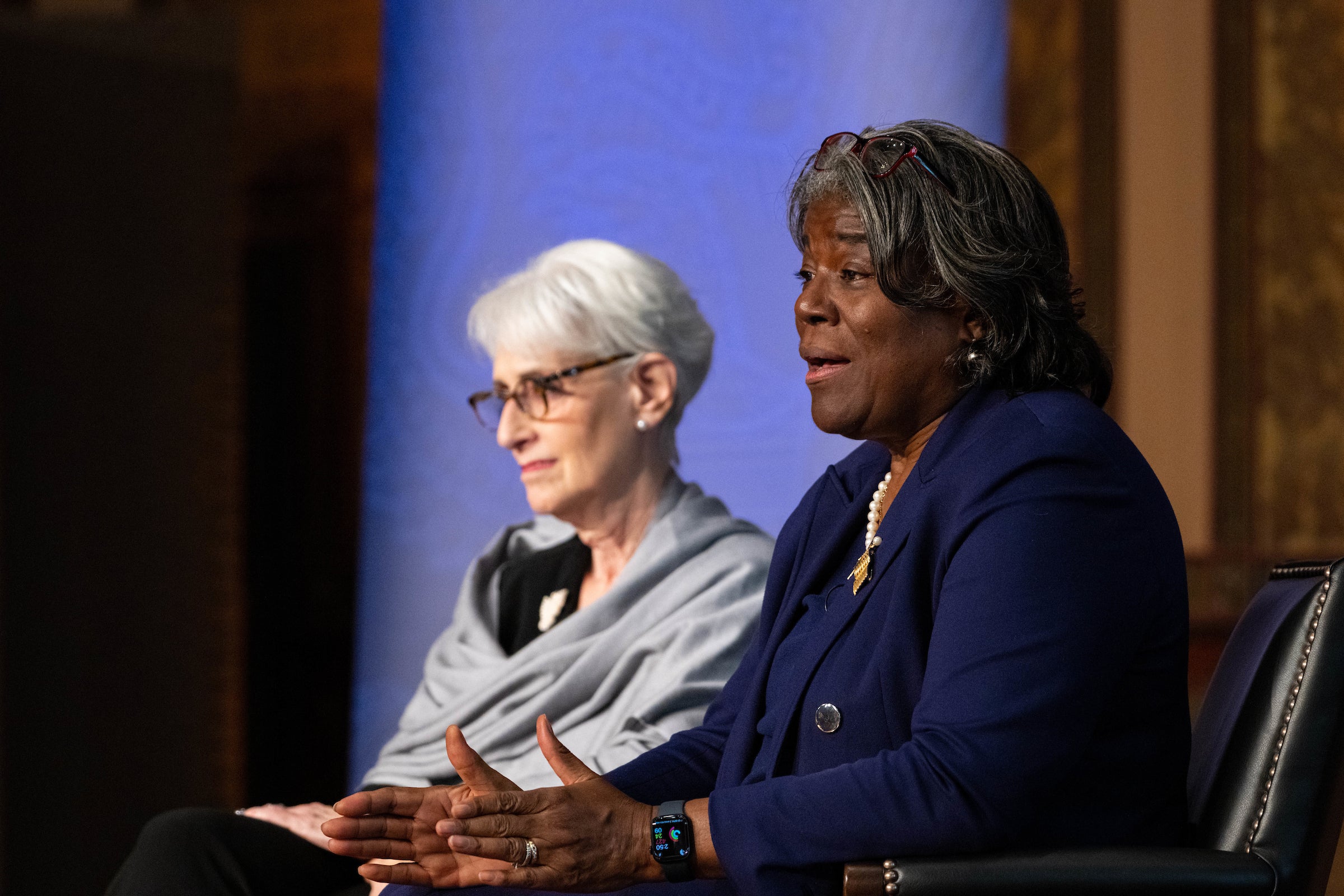
 Channing Lee (SFS’23, G’24): What are some challenges that you’re facing currently as a woman, and what advice do you have for our male colleagues to support women moving forward?
Channing Lee (SFS’23, G’24): What are some challenges that you’re facing currently as a woman, and what advice do you have for our male colleagues to support women moving forward?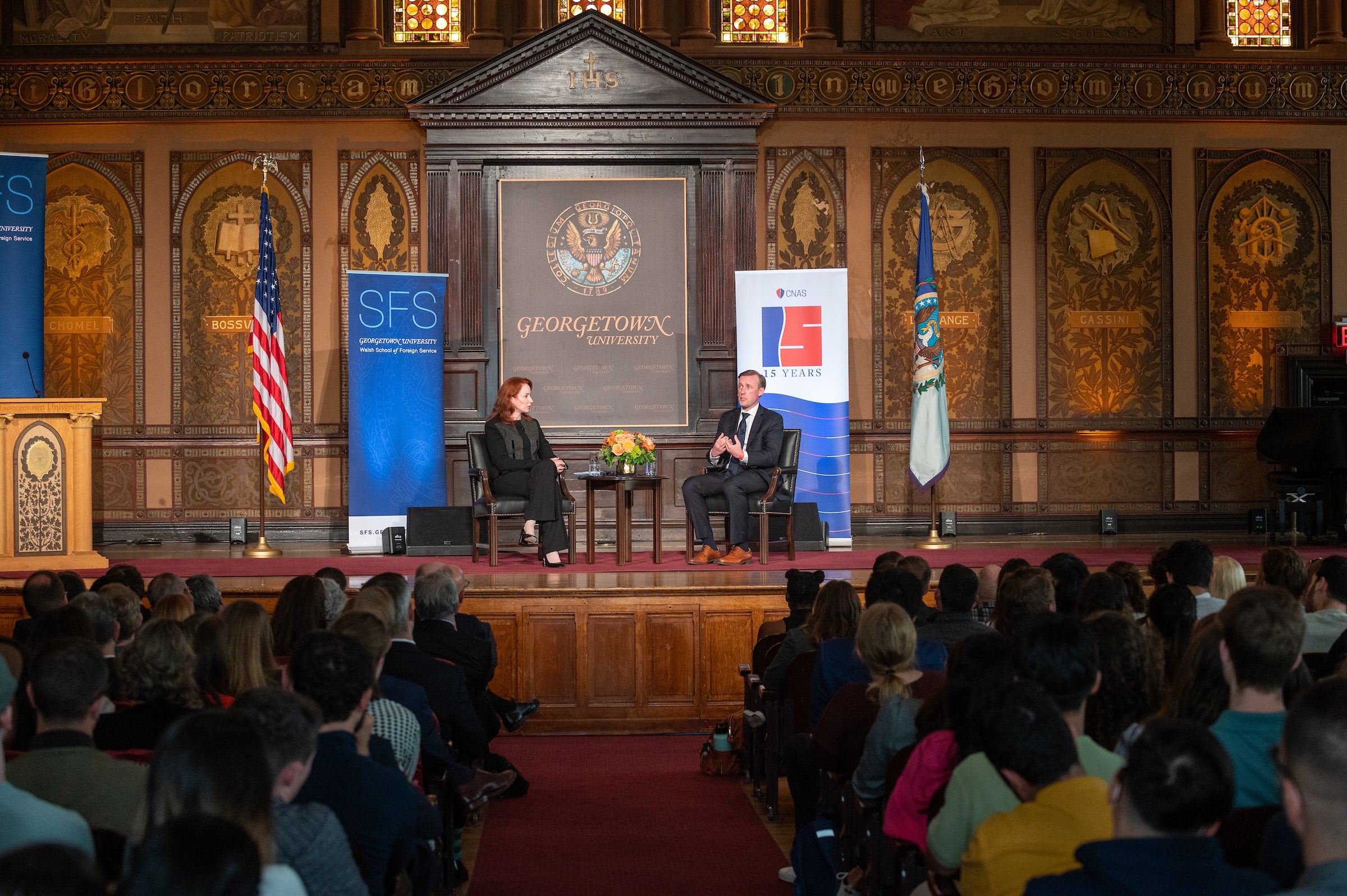
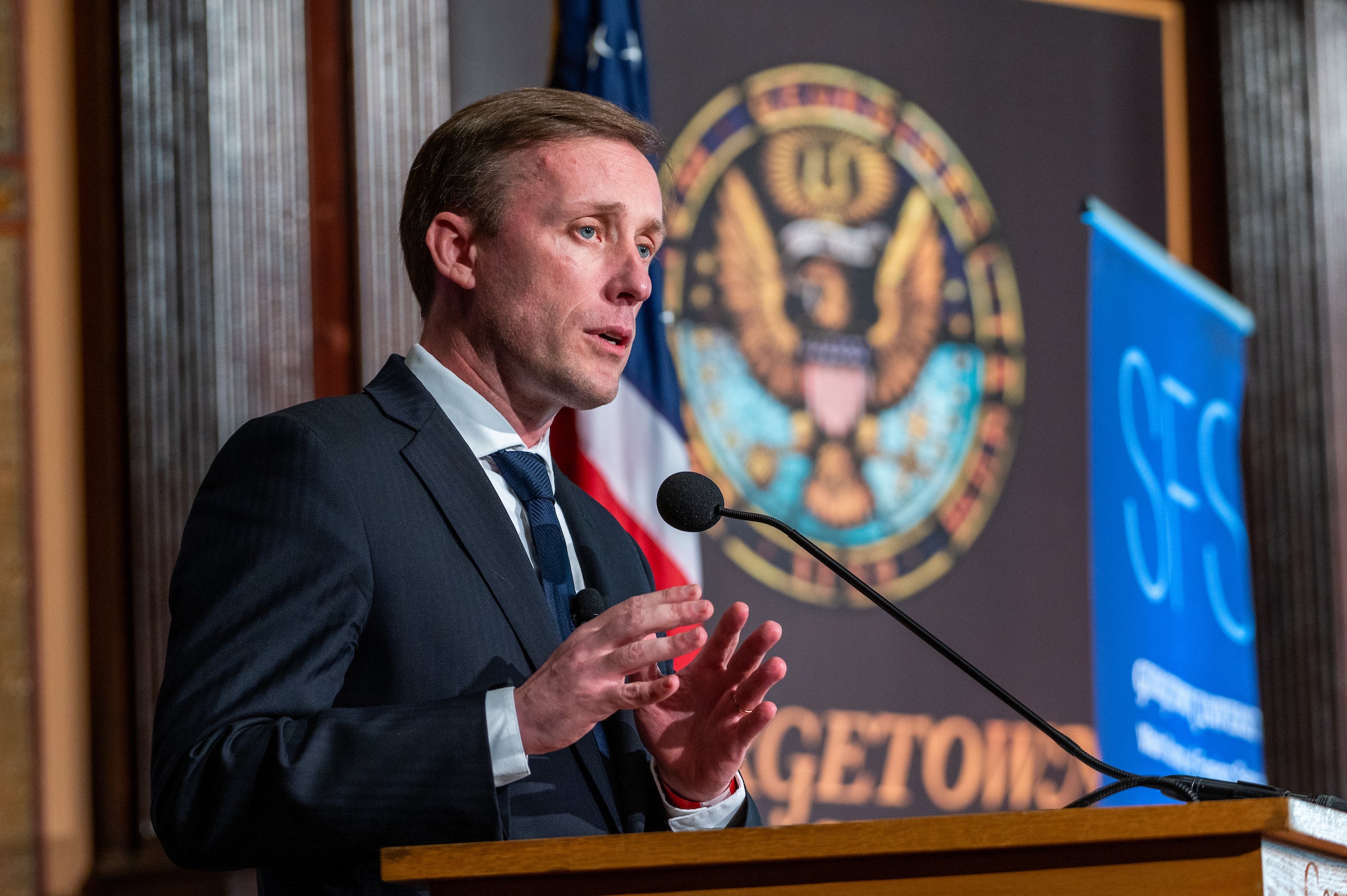
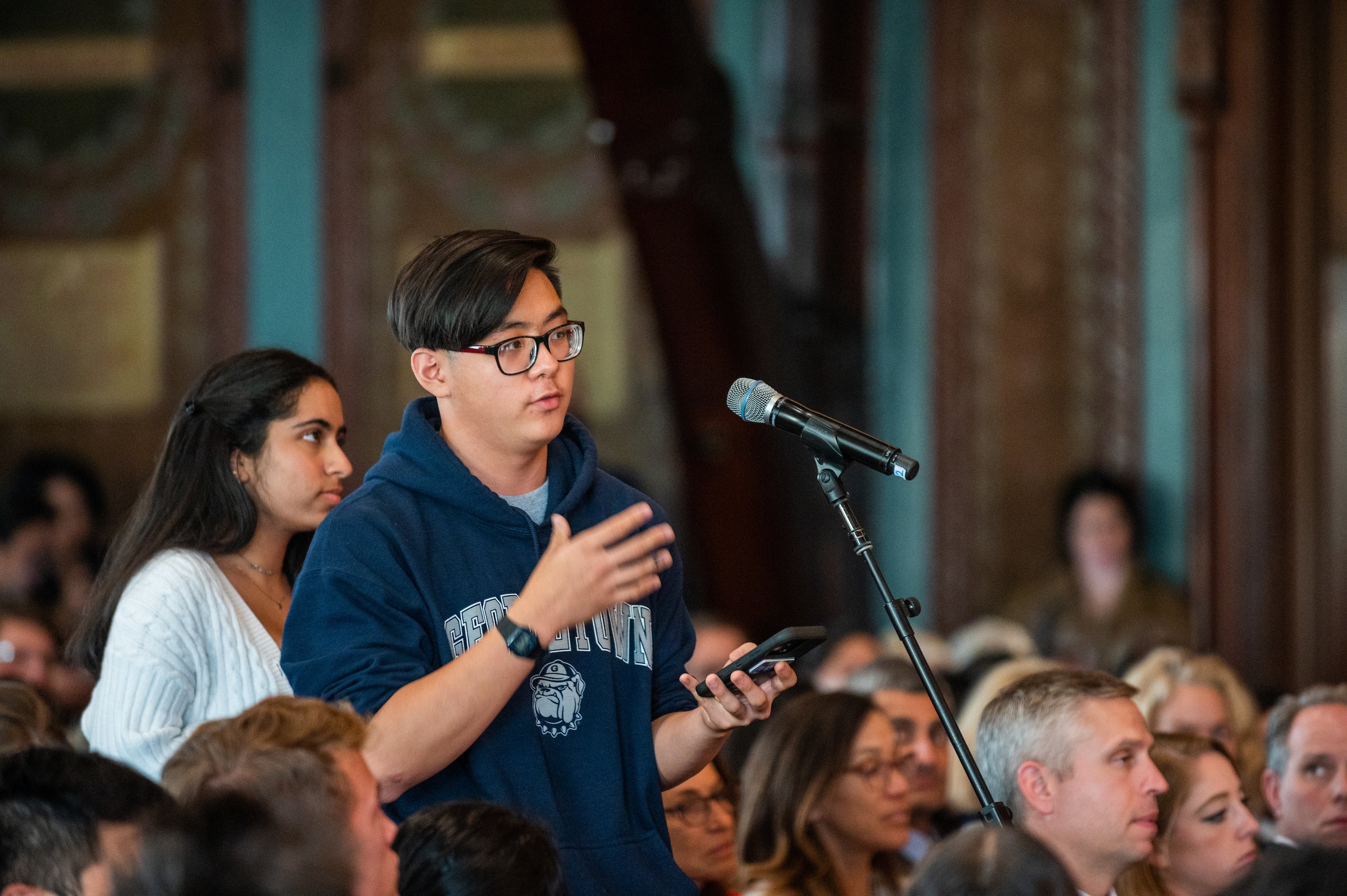
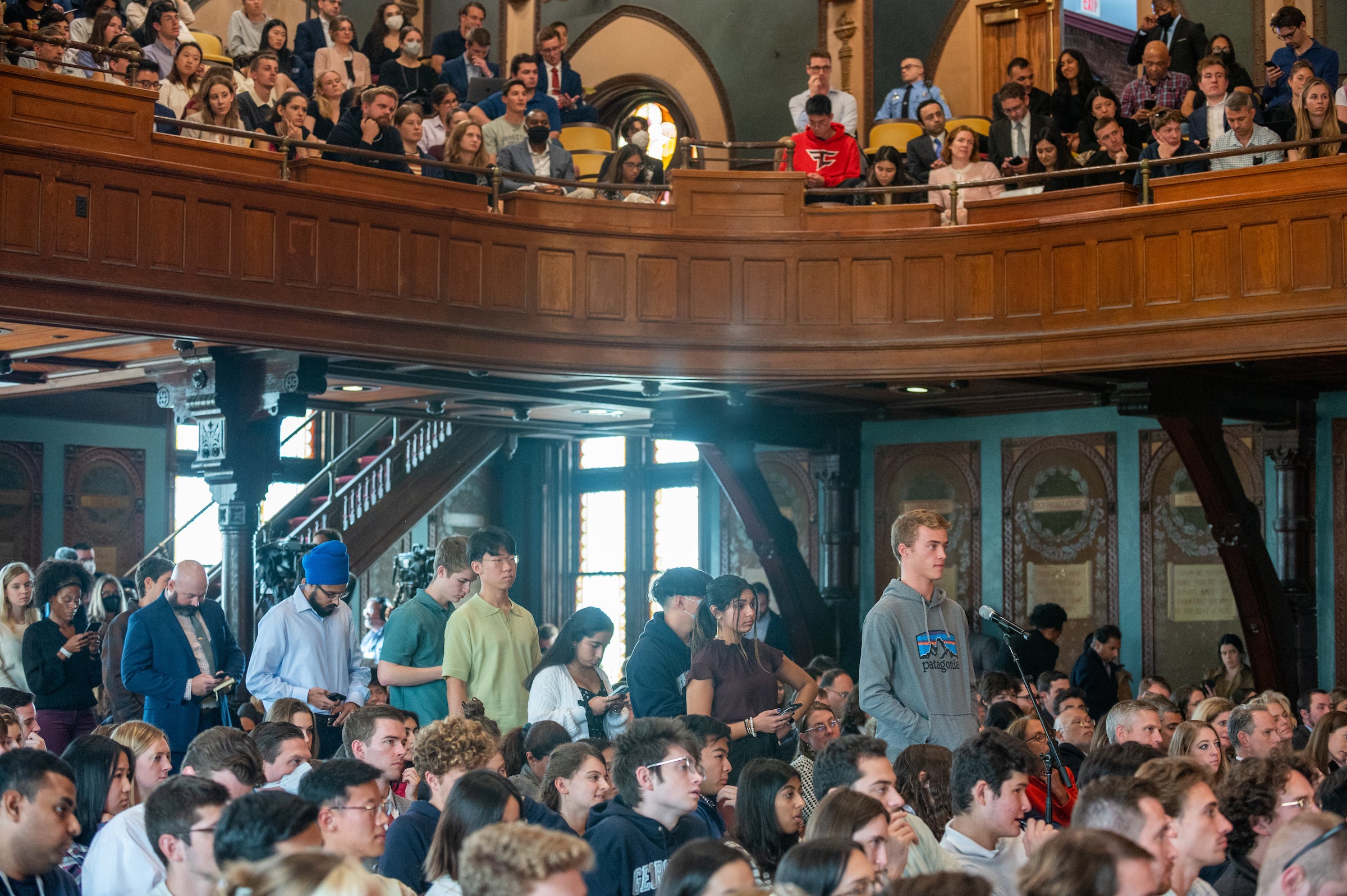
 Feryal Faramarzi (G’19, G’24): I was born and raised in Iran and now I’m a U.S citizen. I want to thank you for amplifying the voice of Iranian women and Iranian protesters in the street. I know it means a lot to them, people who are fighting with bare hands and with nothing to fight for their freedom.
Feryal Faramarzi (G’19, G’24): I was born and raised in Iran and now I’m a U.S citizen. I want to thank you for amplifying the voice of Iranian women and Iranian protesters in the street. I know it means a lot to them, people who are fighting with bare hands and with nothing to fight for their freedom.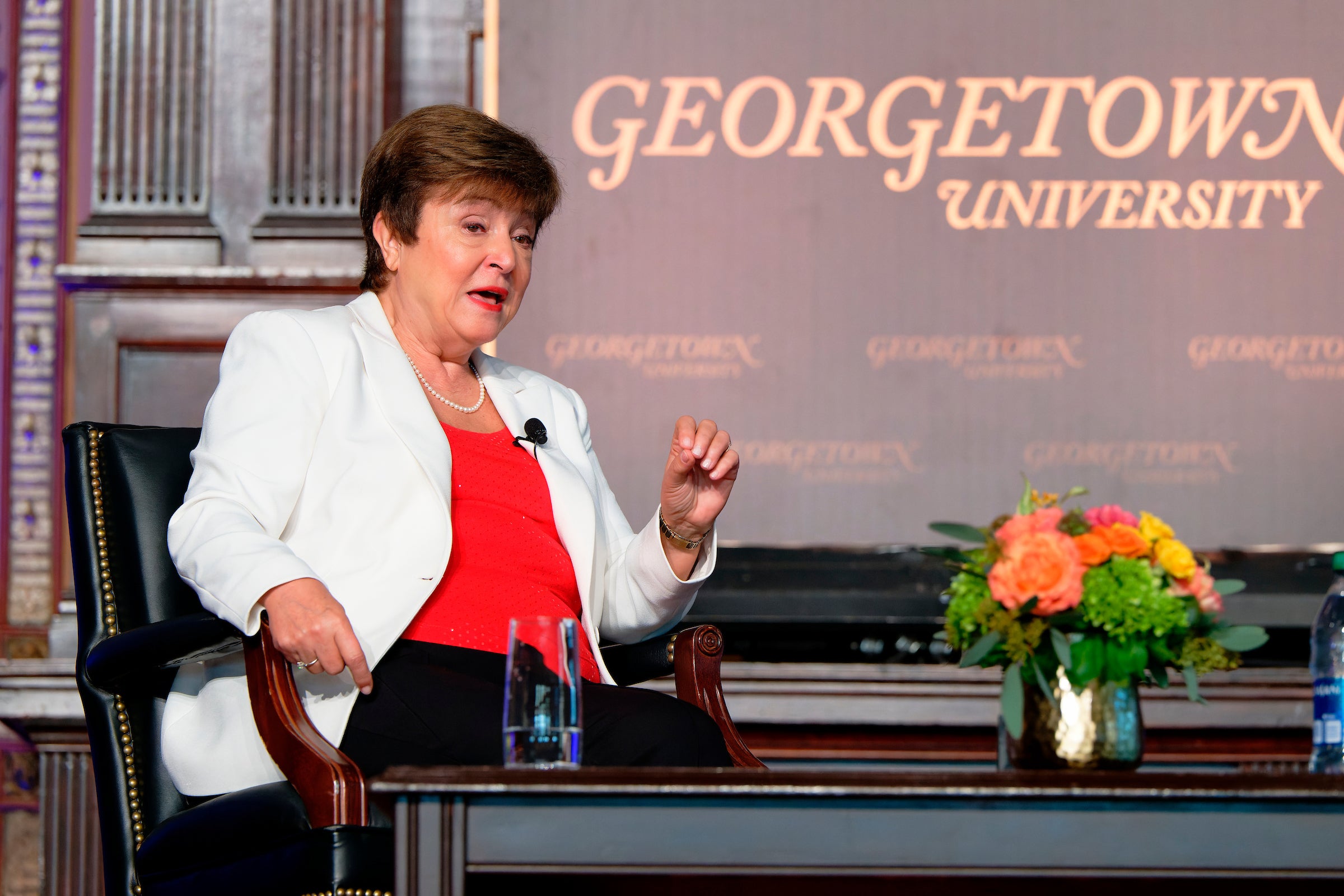
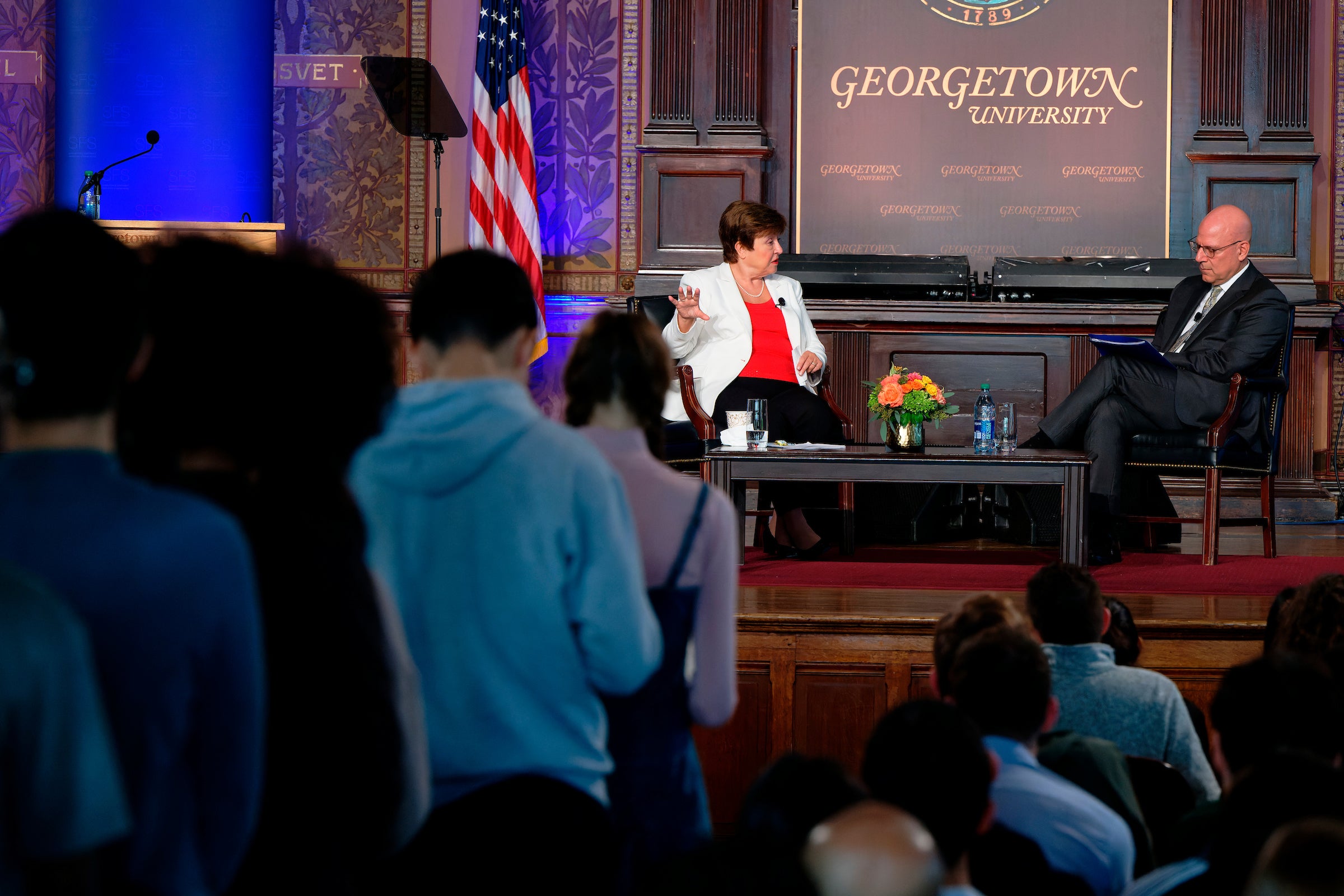
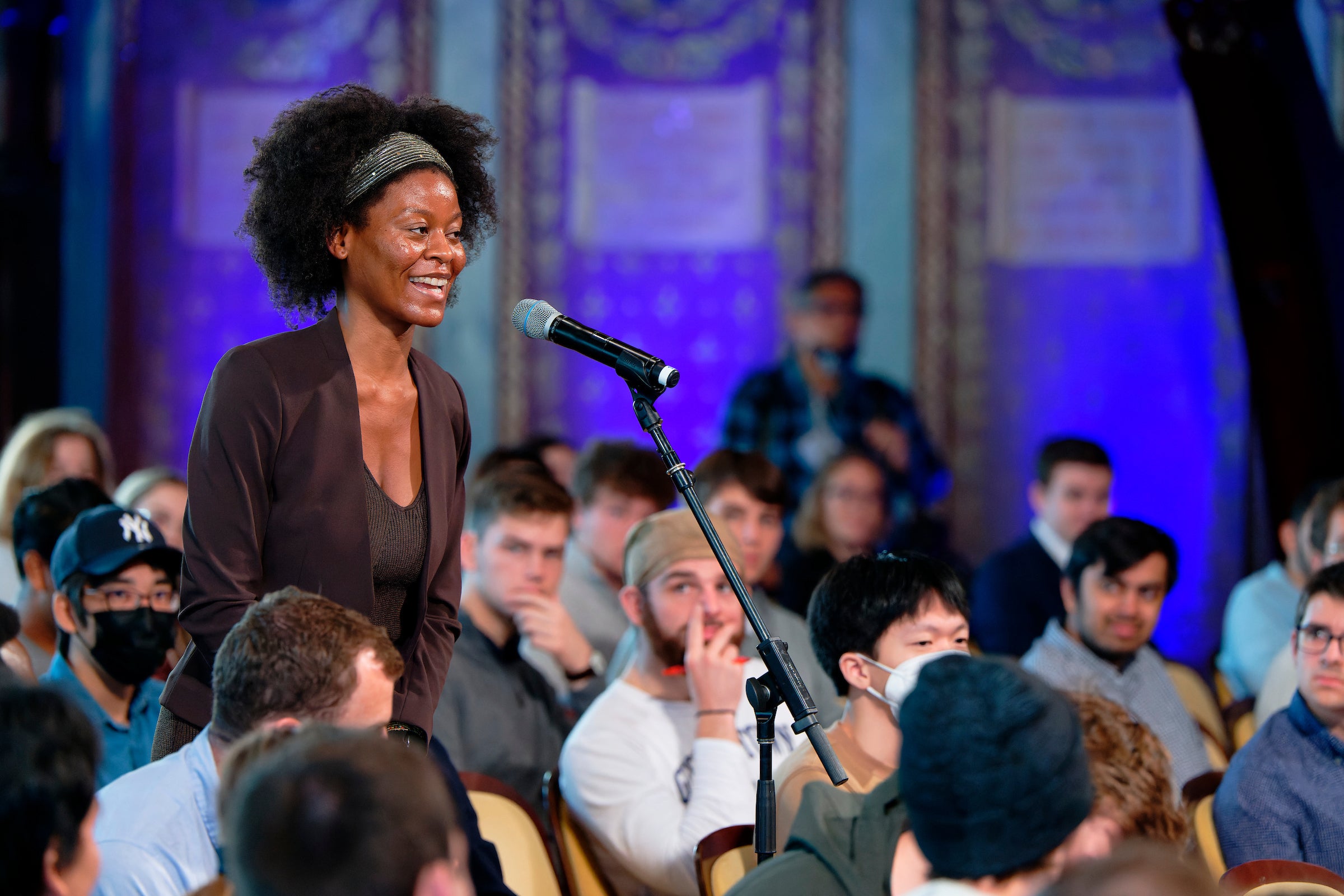
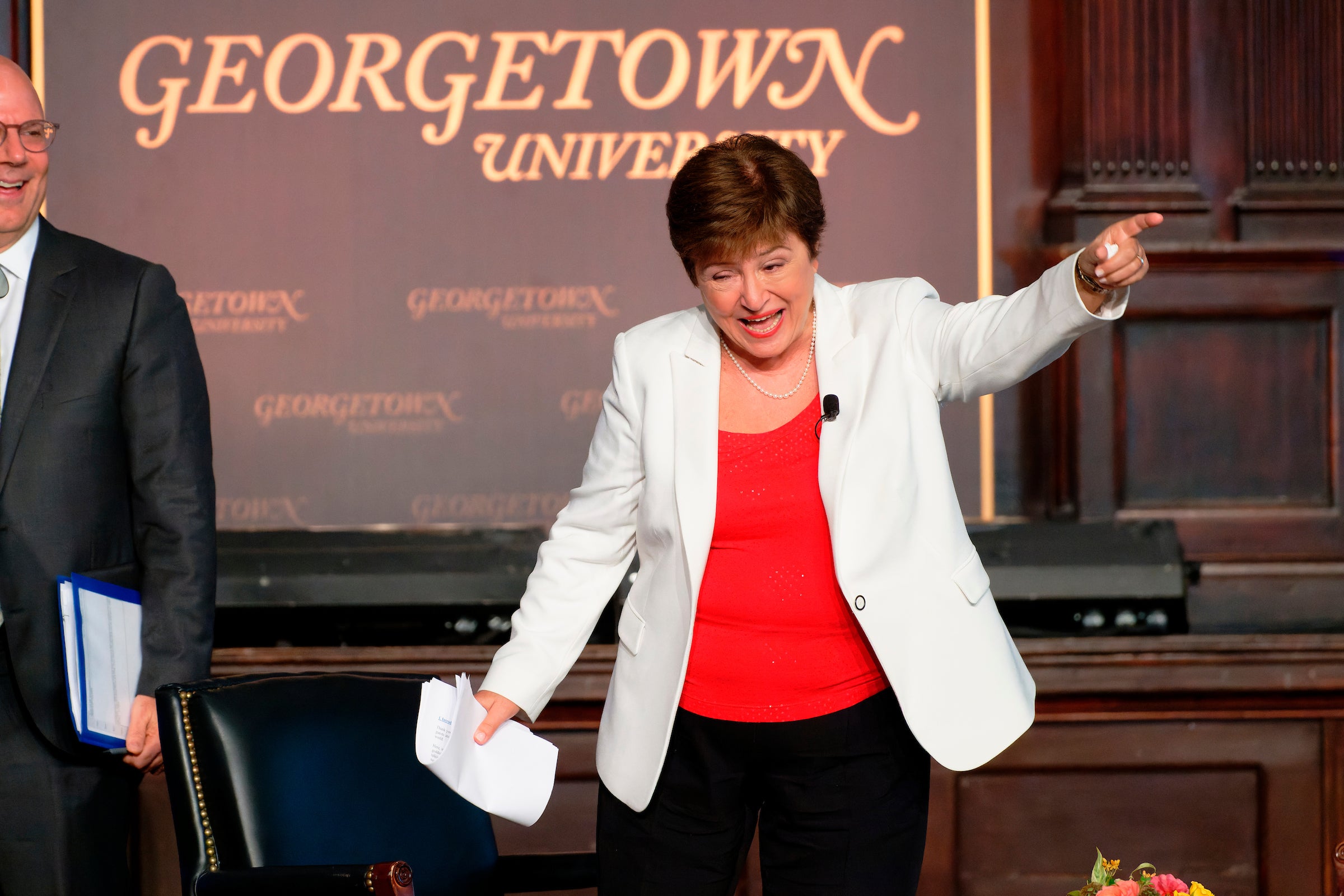
 Haan Jun (Ryan) Lee (SFS’26): You mentioned earlier approximately $300 billion spent to aid certain countries, but oftentimes these aren’t free loans, and often the IMF has come under scrutiny for worsening economic crises by putting countries in more debt. In the modern context, how is the IMF using these funds to ensure that countries don’t get caught up in this endless cycle of debt and instead actually result in actual, practical growth?
Haan Jun (Ryan) Lee (SFS’26): You mentioned earlier approximately $300 billion spent to aid certain countries, but oftentimes these aren’t free loans, and often the IMF has come under scrutiny for worsening economic crises by putting countries in more debt. In the modern context, how is the IMF using these funds to ensure that countries don’t get caught up in this endless cycle of debt and instead actually result in actual, practical growth?
